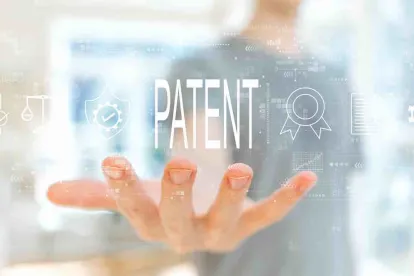The US Patent & Trademark Office Director affirmed and designated as precedential a Patent Trial & Appeal Board (Board) decision denying institution of an inter partes review (IPR) petition where the expert declaration presented conclusory assertions without underlying factual support and repeated verbatim the petitioner’s argument. Xerox Corp. v. Bytemark, Inc., IPR2022-00624 (PTAB Aug. 24, 2022) (Wood, Grossman, Tartal, APJs); Xerox Corp. v. Bytemark, Inc., IPR2022-00624 (Feb 10, 2023) (Vidal, Dir.)
Bytemark owns a patent directed to a method and system for distributing electronic tickets. According to the patent, a user can procure and store an electronic ticket on a device such as a mobile phone, and when the user presents the ticket, the ticket taker can verify the ticket by inspecting a visual object that a human can perceive without a machine scan. In addition to using a validating visual object, the patent teaches data integrity checking to ensure that the ticket data and the software managing that ticket data on the user’s device has not been altered improperly. As to the data integrity concept, the claims of the patent recite a server that is configured to “store in a data record associated with the user account a data value indicating the fraudulent activity” (fraud limitation).
Xerox filed an IPR petition challenging certain claims of the patent as obvious over the Terrell prior art reference in combination with various secondary references. Xerox argued that Terrell disclosed that after fraudulent activity is detected, “the purchaser of the ticket could be blocked from further use of the system or pursued in respect of their potential fraud.” Xerox asserted that a skilled artisan would understand that such blocking would require recording the blocking in a data record associated with that user’s account, and would find it obvious that blocking the account of the purchaser from further use of the system would include storing a data value indicating the fraudulent activity in a data record associated with the user account.
Bytemark responded that Terrell, at most, taught blocking a ticket purchaser from further use of the Terrell system based on potential fraud, but nowhere indicated that this would be achieved by using a data value indicating fraudulent activity, as opposed to some other manner of blocking a user, such as deleting the user’s account or reporting the user for fraud. Bytemark further argued that Xerox’s argument that a skilled artisan would find the fraud limitation obvious was conclusory and an improper attempt to use a skilled artisan’s common knowledge to supply a wholly missing claim limitation without evidentiary support.
The Board agreed with Bytemark, finding that Xerox did not provide sufficient evidence or persuasive reasoning to support either of Xerox’s arguments. The Board explained that Terrell taught blocking the purchaser rather than the account of the purchaser and that it was far from clear that blocking the purchaser would “require” recording the blocking in a record in the purchaser’s account, as opposed to deleting the purchaser’s account altogether. The Board noted that the only evidence Xerox supplied was the opinion of its expert, but that opinion was unpersuasive because it was devoid of any evidence or technical reasoning to support Xerox’s conclusory argument.
As to Xerox’s argument that the fraud limitation was obvious, the Board was again unpersuaded, explaining that Xerox’s expert offered only a verbatim restatement of the assertion being supported without any supporting evidence or technical reasoning. The Board explained that such conclusory expert opinions are particularly problematic because they are offered not simply to provide a motivation to combine prior art teachings, but rather to supply a limitation missing from the prior art.
Practice Note: This decision reaffirms that conclusory expert testimony cannot be used to fill gaps in the prior art. In affirming the decision, the PTO Director stated: “I determine that the Board was correct in giving little weight to Petitioner’s expert because the expert declaration merely offered conclusory assertions without underlying factual support and repeated, verbatim, Petitioner’s conclusory arguments.” She further found that the “declaration sets forth petitioner’s conclusory assertions as though they are facts, rather than setting forth facts and evidence in support of petitioner’s assertions.”




 />i
/>i
